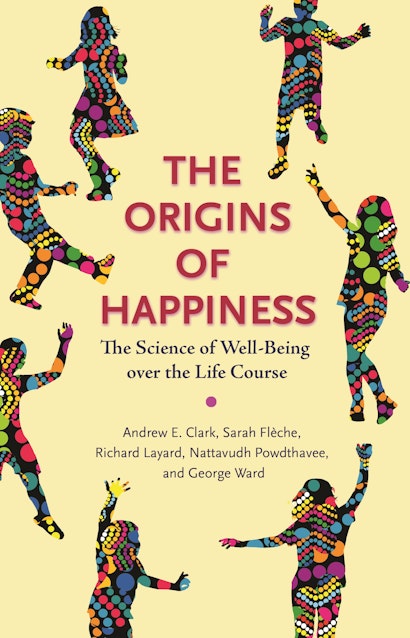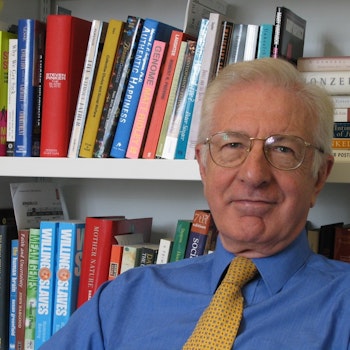What makes people happy? Why should governments care about people’s well-being? How would policy change if well-being were the main objective? The Origins of Happiness seeks to revolutionize how we think about human priorities and to promote public policy changes that are based on what really matters to people. Drawing on a uniquely comprehensive range of evidence from longitudinal data on over one hundred thousand individuals in Britain, the United States, Australia, and Germany, the authors consider the key factors that affect human well-being.
The authors explore factors such as income, education, employment, family conflict, health, childcare, and crime—and their findings are not what we might expect. Contrary to received wisdom, income inequality accounts for only two percent or less of the variance in happiness across the population; the critical factors affecting a person’s happiness are their relationships and their mental and physical health. More people are in misery due to mental illness than to poverty, unemployment, or physical illness. Examining how childhood influences happiness in adulthood, the authors show that academic performance is a less important predictor than emotional health and behavior, which is shaped tremendously by schools, individual teachers, and parents. For policymakers, the authors propose new forms of cost-effectiveness analysis that places well-being at center stage.
Groundbreaking in its scope and results, The Origins of Happiness offers all of us a new vision for how we might become more healthy, happy, and whole.
Andrew E. Clark is a full research professor at the Paris School of Economics. Sarah Flèche is a research economist at the London School of Economics. Richard Layard is emeritus professor of economics at the London School of Economics and a member of the House of Lords. He is the coauthor of Thrive (Princeton) and Happiness. Nattavudh Powdthavee is professor of behavioral science at Warwick Business School. He is the author of The Happiness Equation. George Ward is a PhD candidate in behavioral and policy sciences at the Massachusetts Institute of Technology. All of the authors are members of the Wellbeing Programme at the London School of Economics’ Centre for Economic Performance.
"Origins of Happiness is an important contribution to an important debate."—Anna Alexandrova and Ramandeep Singh, Times Literary Supplement
"Based on extensive longitudinal data in four countries, this book about the science of well-being over the life course is a significant contribution not only to psychology but also ultimately to policy-making in terms of what really matters to people."—David Lorimer, Paradigm Explorer
"If policymakers want to improve lives, it is important to understand how people feel—and why. This book charts new territory, providing the first map of the long-term drivers of people's happiness. Along the way, it highlights both familiar and more groundbreaking routes to progress. There are helpful signposts in here for all those seeking different and better paths to advance people's well-being."—Martine Durand, chief statistician and director of statistics of the Organization for Economic Co-operation and Development
"The Origins of Happiness is a wonderful book. It presents a new look at what causes human well-being, and carefully analyzes the policies and programs that can enhance it."—Ed Diener, coauthor of Happiness: Unlocking the Mysteries of Psychological Wealth
"This book—written by several masters in the field—brings our knowledge of well-being to a new level. It demonstrates how experiences and emotions in the early years link to adult outcomes, and highlights the importance of parental well-being to that of children. The authors provide new metrics for designing and assessing policies that can affect the welfare of millions of people throughout the course of their lives. This work is a must-read for the academic, policymaker, and informed citizen alike."—Carol Graham, author of Happiness for All? Unequal Hopes and Lives in Pursuit of the American Dream
"Rooted in the best-available evidence for each stage in life, The Origins of Happiness provides an ambitious and comprehensive analysis of what leads to a satisfying life, from childhood to old age."—Alan Krueger, Princeton University
"The most significant contribution of The Origins of Happiness lies in its integrated approach to life satisfaction over the life cycle. The authors combine cohort studies, longitudinal panels, and cross-section surveys to provide fuller perspectives. No one else has done this in such a systematic way."—John F. Helliwell, University of British Columbia



